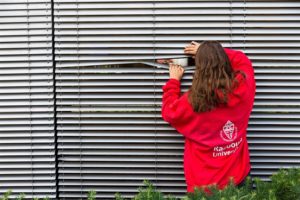
The opening lecture at this year’s opening of the academic year was presented by Bert Wagendorp and addressed the topic ‘Curiosity’. As a researcher socialised at a real Research University, curiosity is very close to my heart, and I felt strong sympathy and agreement with the words of Bert Wagendorp. Below you find my own free translation of his speech.
It is a great honour for me to be here today and to be able to contribute to the opening of the academic year. That has never happened to me at my alma mater, the University of Groningen.
Nijmegen is a special place for me, my mother was born here, my grandfather was a teacher at the Hazenkampseweg and my great-grandfather was a well-known Nijmegen farmer. And then somewhere in my family tree there is also a verger of the St. Stevens Church.
The fact that I can sing the praise of curiosity and doubts here at a former Roman Catholic university as a journalist of a former Roman Catholic newspaper makes it extra special. Progress exists.
I am a journalist and I find it a happy coincidence that the topic of this afternoon is curiosity. Because curiosity is the basis of my profession. A journalist without curiosity can better do something else. In that respect, there is an agreement between journalists and scientists.
I do not know how that is with scientists, but there are many more journalists who lose their curiosity than you might think.
‘Losing’ is, by the way, the wrong word, we can not lose something that is ingrained in our minds. But there may come a time when we deny our curiosity, stop asking questions, because looking for answers is too strenuous for us. Journalists caught by this, for example, become university educators. Then the taming of curiosity has become their profession. Other journalists who have put aside their curiosity remain journalists, because denying your curiosity does not mean that you do not have to pay the mortgage anymore. Scientists who lose their curiosity, often then become university administrators.
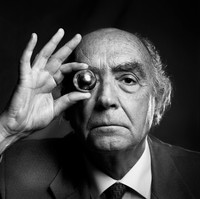 The loss of curiosity is tragic and an important signal, at least, according to the Portuguese writer José Saramago. According to him, old age starts where curiosity ends. He died in 2010 at the age of 86 as a curious man who had never become old.
The loss of curiosity is tragic and an important signal, at least, according to the Portuguese writer José Saramago. According to him, old age starts where curiosity ends. He died in 2010 at the age of 86 as a curious man who had never become old.
Incidentally, I can understand the man who puts his curiosity on the back burner. Keeping curiosity alive requires a lot of effort and answering the questions that emerge from the curiosity as well. And then you have to wait and see if those answers are sufficient. Usually they lead to new questions that also beg for an answer. The life of the curious person is restless, boundless and endless. Curiosity can lead to disillusionment and the loss of security. But it also leads to enrichment.
According to the Bible, Eva, the wife of Adam, was the first curious person. Seduced for this by the serpent, she took a bite of the fruit of the tree of the knowledge of good and evil. We have seen where that led to. Adam and Eve were thrown out of the blissful paradise of ignorance and ended up in the rugged world of eternal questions and the arduous search for answers; in short, in the world in which curiosity reigned, our world. Without curiosity, As it turned out, there was no survival outside of paradise.
But, to be honest, it was also incredibly boring in paradise. There was nothing to experience. It was even worse than in Centerparcs. How Adam and Eve should have endured eternal life in paradise, God alone knows.
Life only began to become interesting and exciting when the gate of paradise was locked behind them and doubt appeared on the horizon. And that was because of the bonus given to any kind of curiosity: the curious constantly explores the distant unknown, meets great minds and experiences things that will remain unknown to the less curious. The most important of these experiences is the surprise, the overwhelming new insight that turns everything upside down. Curiosity leads to better understanding, to explanations for the hitherto unexplained. And to new curiosity.
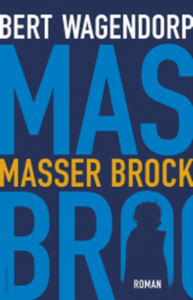 Coincidentally, a novel by my hand appeared last year about a journalist who reached the end of curiosity. When my editor-in-chief read the book Masser Brock, it counts 412 pages, he said that I could also have done with a letter of resignation of two A-4s. In that comment was a truth and an untruth. The truth was that whoever loses his curiosity is no longer suitable for this profession. And then I’m not just talking about the journalist. It had made little difference to the core of the novel if I had made Masser Brock a scientist.
Coincidentally, a novel by my hand appeared last year about a journalist who reached the end of curiosity. When my editor-in-chief read the book Masser Brock, it counts 412 pages, he said that I could also have done with a letter of resignation of two A-4s. In that comment was a truth and an untruth. The truth was that whoever loses his curiosity is no longer suitable for this profession. And then I’m not just talking about the journalist. It had made little difference to the core of the novel if I had made Masser Brock a scientist.
The untruth was that the protagonist in the novel and the author of the novel should never be equated.
Coincidentally, Masser Brock had developed a theory that I often use myself. Like me, he called it the Theory of Layered Truths. This theory is based on the stratification of reality and the different truths that come with it. According to Masser, you can divide the news according the depth of each level of truth. A bare news item can consist of one single layer and then it is unambiguous and uninteresting. But there may also be several layers of truth, the news item may then only be the tip of the iceberg. In that case it forms a layered story, in which you can set one truth against another, or in which a truth is thrown upside down by the truth underneath. Digging for the different layers of truth is done with the help of to the five W’s, Who, What, Where, When and especially: Why.
For science too, the Theory of Layered Truths is a useful tool. There the ‘Why’ is the magical abacadabra of the curious truth seeker.
We have just heard the beautiful song ‘Dare to Doubt’, and I can assure you that Masser Brock could have joined in with full conviction. There are few ‘doubters’ in the Dutch literature of the same calibre of Masser Brock. He doubts everything; he not only dares to doubt, he actually can not do otherwise. That does not make his life easier.
Doubt and curiosity are brother and sister. Who doubts is researching, for those who know for certain, research is superfluous. Eventually the doubter is driven by a certain despair, for doubt is an exhausting state of being. The doubter is life-long looking for security, with the only certainty, that he will never find it. That is not really a pleasant fact, but that is life, we call it la condition humaine.
In a moment of great lucidity, Masser suddenly sees that reality has the form of a pyramid. Under every truth, There is not one other truth, no, there are at least two. And below them there are four. Etcetera. And that continues until at the base of the pyramid it becomes so complicated that nobody really understands it any more. The deeper you dig, Masser thinks, the more confused it becomes. There is no single truth, there are infinite truths.
The truth is a convention, an article of faith to keep things a bit clear and reassuring.
Then Masser leaves for the Provence, where he observes the growth of the grapes, without even wondering how that actually works.
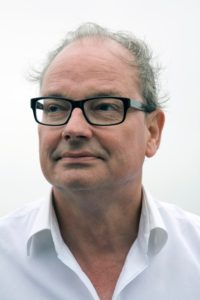 What I want to say with this is that the curious does not choose the easiest way, he gets a lot of trouble and hassle on his neck. But we can not do otherwise. The former ‘Thinker of the Fatherland’, the philosopher René Gude, said that our incessant, curious striving for knowledge is nothing more than an attempt to supplement ourselves, to brush up, to develop. To put an end to a gnawing sense of emptiness and to find an answer to the disturbing question of what we are doing here and why. According to him, curiosity had to do with a desire – without knowing exactly what we desire.
What I want to say with this is that the curious does not choose the easiest way, he gets a lot of trouble and hassle on his neck. But we can not do otherwise. The former ‘Thinker of the Fatherland’, the philosopher René Gude, said that our incessant, curious striving for knowledge is nothing more than an attempt to supplement ourselves, to brush up, to develop. To put an end to a gnawing sense of emptiness and to find an answer to the disturbing question of what we are doing here and why. According to him, curiosity had to do with a desire – without knowing exactly what we desire.
That desire is endless, just like our curiosity. Our observation is limited, Gude said, following Descartes, our minds are limited, our whole ability is limited, but our will, our desire for knowledge, our curiosity knows no limitation.
In biology we know the concept of neoteny: the human being who, for much longer than other animals, continues to exhibit youthful characteristics and whose brain is not fully mature until around the age of 25. That, in turn, is related to the fact that we are actually born too early and therefore have been working for a relatively long time to become adults. It concerns physical characteristics, but perhaps curiosity is a mental form of it. The human being who is curious about the world around him will always stay young and keeps asking questions. Who, in the terminology of philosopher Peter Sloterdijk, constantly enters new spheres and tries to understand them… We are born curious and curiosity always stays with us.
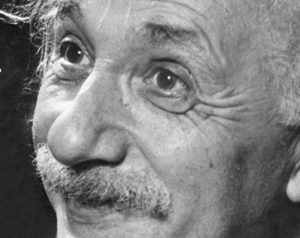 And fortunately, because our whole civilisation is based on it, and shaped by it. It is a direct result of our curiosity. The greatest minds of our culture were the most curious spirits. You undoubtedly know Albert Einstein’s famous statement: ‘I have no special talent. I am only passionately curious’. Great scholars and great artists are united in curiosity. In the work of the greatest Dutchman in history, the philosopher Spinoza, the curiosity sparks from it. Look at the work of the painter Picasso and you see a life-long quest driven by pure curiosity.
And fortunately, because our whole civilisation is based on it, and shaped by it. It is a direct result of our curiosity. The greatest minds of our culture were the most curious spirits. You undoubtedly know Albert Einstein’s famous statement: ‘I have no special talent. I am only passionately curious’. Great scholars and great artists are united in curiosity. In the work of the greatest Dutchman in history, the philosopher Spinoza, the curiosity sparks from it. Look at the work of the painter Picasso and you see a life-long quest driven by pure curiosity.
Religions know that curiosity is the ax at the root of faith, and therefore did not stimulate it. In fact, they prefer to put curious people at the faggot. Even in my own youth in a conservative Protestant milieu, curiosity was seen as a vice rather than a virtue. Curiosity, questioning, searching, was dangerous because it would irrevocably lead to answers that were not in accordance with the dogmas on which the belief was based. Dogmas are never curiosity-proof.
In the West, the Enlightenment opened the for curiosity, and immediately the absolute truths were questioned – although they are still very persistent to this day.
Here, I am a guest in a centre of curiosity. I am not sure whether we are still sufficiently aware of this, in this profit- and output-based society, in which the most curious question is: what does it yield? That is not the first question of the curious person. He/she wants to know something much more fundamental, period.
I would not want to nourish the politicians who think that curiosity and its financing should be in the service of the gross national product, the employment and the export of tomatoes and cucumbers. That is legitimate, as long as it is not the only purpose of scientific research. Because then something essential is lost, not only scientifically, but especially in what we ideally and in our deepest sense are: the curious, searching human being.
Every civilised society cherishes the curiosity of artists and scientists, without immediately asking about the utility. It is easy to make a caricature of the artist who is freely creative in his atelier or the absent minded scientist in his ivory tower. But what we then seem to forget is, that they bring us further, perhaps not directly in the economic sense, but as a human beings. We would still live in caves or swampy marshes, if there had not been these incomprehensible searchers who have the why-question remaining on their lips. We would literally have stayed primitive and would never have reached beyond our status quo. Curiosity also stems from dissatisfaction, from the refusal to accept that things just go the way they go.
Saramago’s definition of old age – and perhaps of death – as the end of curiosity, applies to the individual. But perhaps you can generalise it, to society as a whole. Perhaps a society in which curiosity is not or not sufficiently cherished is ageing, or approaching death. Curiosity is connected with doubt, but also with vitality. It prevents stagnation, lethargy and complacency. A sensible government does not just address the usefulness of innovation by mouth, but it also stimulates curiosity and fundamental research. And is willing to provide the necessary budgets for it. If we really want to look at costs and benefits, I dare to claim that the benefits – and then I am not just talking about the monetary benefits – will far outweigh the costs.
In other countries, people seem much more aware of this than in the Netherlands, the country of utility thinking par excellence. That needs to change, otherwise we will pay a high price for it.
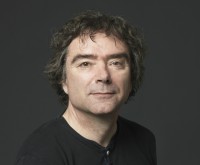 Saramago was a child of poor Portuguese farmers. He was allowed to go to a technical school by grace of God and then worked for years as a car mechanic. But every night he went to the village library to read everything he could get, driven, as he wrote himself, by nothing but curiosity and the will to learn. In 1998 he won the Nobel Prize for literature.
Saramago was a child of poor Portuguese farmers. He was allowed to go to a technical school by grace of God and then worked for years as a car mechanic. But every night he went to the village library to read everything he could get, driven, as he wrote himself, by nothing but curiosity and the will to learn. In 1998 he won the Nobel Prize for literature.
I wish you all an academic year in which the curiosity, the desire for knowledge and the doubt are passionately celebrated and given free rein.
Bert Wagendorp
